WB to give $400m loan, $300m grant for Rohingya, hosts
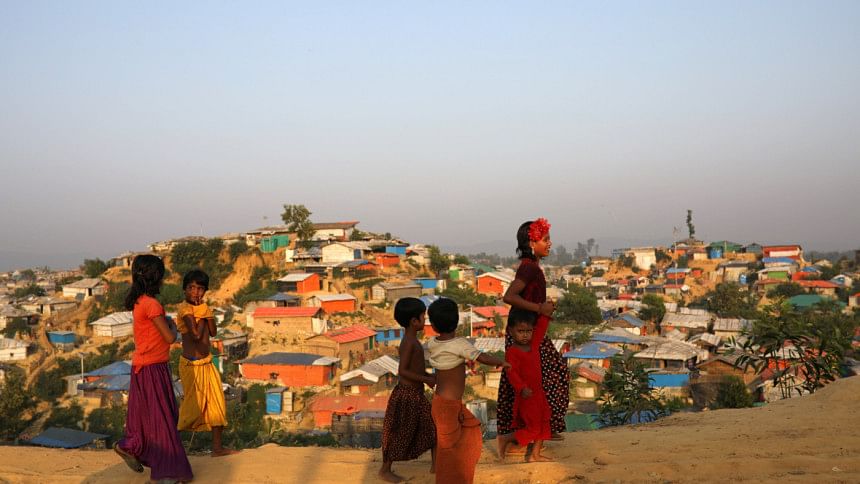
World Bank (WB) yesterday approved two projects totalling $700 million to provide basic services and build disaster and social resilience for both the displaced Rohingya population in Bangladesh and the host communities.
Of the amount, $407.50 million is in the form of a loan and the remaining $292.50 million a grant, according to a WB appraisal document.
The $407.50 million loan will be the first of its kind by the global lender since the onset of the Rohingya crisis.
The loan will have an interest rate of two percent and a repayment period of 30 years, including an eight-year grace period, said an Economic Relations Division official.
According to a WB press release, the lender provided $590 million in grants since the onset of the Rohingya crisis.
The two projects are underpinned by the lessons learned through the previous interventions, as well as learnings from forced displacement crises around the world, it read.
According to the WB appraisal document, the financing has been a critical complement to the humanitarian response, which has been declining.
An annual "Joint Response Plan (JRP) for the Rohingya Humanitarian Crisis", managed by the Bangladesh government and United Nations partners, coordinates financing for critical humanitarian services for the displaced Rohingya population and host communities.
The 2023 JRP needed $876 million but was able to gather only 49 percent of it as of December 2023, says the document.
This led to a reduction in food assistance provided by World Food Programme, for which an estimated 78 percent of the displaced Rohingya population did not have sufficient food in 2023.
Earlier in November 2022, it was estimated to be 44 percent.
The press release says the WB has helped the displaced Rohingya population and host communities on disaster preparedness, basic infrastructure, social protection, collaborative forest management, and income generation opportunities for the host communities.
"We greatly appreciate the Government of Bangladesh's generosity in supporting nearly one million Rohingya people. We also recognise the enormous pressure placed on the host communities," said Abdoulaye Seck, World Bank country director for Bangladesh and Bhutan.
Nearly one million Rohingya have fled violence in Myanmar to Bangladesh since 2017, making it one of the largest forced displacement crises in the world.
"With the crisis entering its seventh year, long-term planning and sustainable solutions have become critical, while also addressing short-term, urgent needs," the WB said.
"We are fully committed to supporting the Government of Bangladesh to address this complex crisis and support the wellbeing of both the Rohingya and host communities," it said.
Of the two projects, one is a $350 million Inclusive Services and Opportunities for Host Community and Displaced Rohingya Population (ISO) Project and the $350 million Host and Rohingya Enhancement of Lives Project (HELP).
The ISO Project will build on active investments in livelihoods and essential health, nutrition, family planning, gender-based violence response and prevention services for at least 9,80,000 people in the Rohingya and host communities.
The project will prioritise investment in human capital development, with the aim to support the education of 3,00,000 Rohingya children under the age of 12.
"The protracted displacement crisis that the Government of Bangladesh is addressing is ultimately a challenge about supporting people, whether they are in the host community or in the displaced Rohingya population," said S Amer Ahmed, World Bank task team leader for the ISO Project.
"The ISO Project will be supporting vulnerable households in both communities to invest, protect, and use their human capital through support for temporary work, training, education, child protection, primary healthcare, nutrition, family planning, and gender-based violence response and prevention services," he said.
The HELP will improve access to basic services and enhance the resilience of at least 6,45,000 people in the Rohingya and host communities.
Project activities will encompass urgently needed investments in water, sanitation, and hygiene, climate resilient roads, renewable energy, and multipurpose disaster shelters – underlying foundations critical to supporting productive livelihoods.
The project will also focus on building skills for operations and maintenance at both the government and community levels, aiming for a dual benefit of infrastructure sustainability and longer-term skills development.
"…The Rohingya people continue to live in extremely congested settlements and have minimal access to basic services. The host communities are also deeply impacted, with continued additional pressure on limited resources," said Swarna Kazi, World Bank task team leader for HELP.

 For all latest news, follow The Daily Star's Google News channel.
For all latest news, follow The Daily Star's Google News channel. 

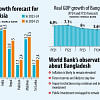

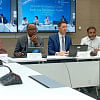
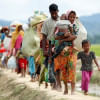


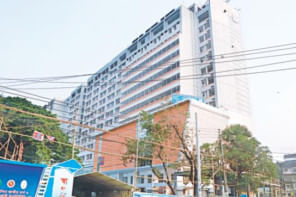
Comments